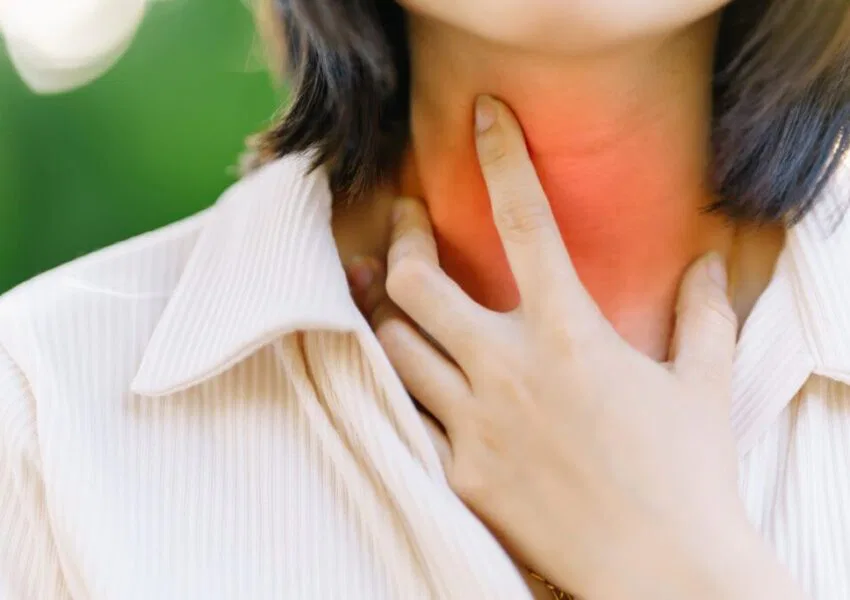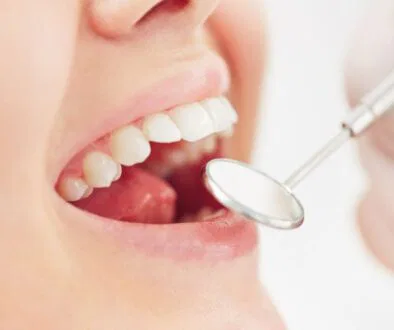Bad Taste In Back Of Throat: Causes And Treatment

Published June 24, 2024
Have you ever had that awful taste lingering in the back of your throat? It’s not just unpleasant—it’s worrisome. This problem can stem from anything as simple as your diet to severe health conditions. Uncovering the root causes and finding effective treatment is key to banishing this discomfort for good.
In this article, we’ll explore the causes of bad taste in back of throat, from poor oral hygiene to complex medical conditions. We’ll also cover treatment options to help you find relief and improve oral health.
Common Causes Of Bad Taste In Back Of Throat
A bad taste in back of throat can be both uncomfortable and concerning. Various factors can contribute to this common issue, each with its health implications. Understanding these causes can help effectively address and alleviate the problem.
Dental problems
Poor oral hygiene often causes bad taste. Inadequate dental care can lead to cavities, abscesses, gum disease, and other infections. Symptoms include bleeding gums, pain, redness, swelling, sensitive teeth, and bad breath. Regular brushing, flossing, and dental check-ups are crucial to prevent these issues.

Dry Mouth
Dry mouth occurs when there’s insufficient saliva to keep the mouth moist. This can happen due to dehydration, smoking, certain medications, or medical conditions affecting the salivary glands. Without enough saliva, food particles and bacteria buildup. This leads to bad breath and an unpleasant taste.
Acid Reflux (GERD)
Acid reflux or gastroesophageal reflux disease (GERD) involves stomach acid traveling back into the esophagus, often causing a sour taste in the mouth. Other symptoms include heartburn, bad breath, nausea, sore throat, cough, and hoarseness.
Oral Thrush
Oral thrush is a fungal infection. It causes a bad taste and a cottony sensation in the mouth. You may notice white sores on the tongue or inner cheeks. Cracking at the corners of the mouth is common. Other symptoms include loss of taste, difficulty eating or swallowing, and pain or irritation under dentures.
Respiratory Infections
If you have experienced a bad tasting phlegm in back of throat, it’s likely a respiratory infection. Sinusitis, tonsillitis, colds, and other respiratory illnesses can contribute to a bad taste. These conditions often include a sore throat, headache, and nasal or sinus congestion. A runny nose, earache, and fever may also occur.
Nutritional Deficiencies
Your taste and oral health can be affected if your body lacks vitamins and minerals, such as vitamin B12, zinc, vitamin C, and folate. Sadly, this can lead to an unpleasant taste.
By knowing these common causes, you can better manage and mitigate the discomfort of a bad taste in back of throat.
Uncommon Causes Of A Bad Taste In Back Of Throat
While the common causes of an unpleasant taste in the back of the throat are well-known, several lesser-known factors can also contribute to this discomfort.
- Medications. Certain drugs can alter taste perception. These include antibiotics, ACE inhibitors, oral contraceptives, antirheumatic drugs, immunomodulating drugs, antidepressants, antiseizure drugs, antipsychotic drugs, and opioids. Adjusting the dosage or switching to other options may help.
- Pregnancy. Hormonal changes during pregnancy can impact taste and smell, often resulting in a metallic taste. This typically improves as the pregnancy progresses.
- Serious health conditions. Hepatitis and chronic kidney disease can also cause undesirable taste. Neurological conditions like brain injuries, tumors, dementia, epilepsy, and diabetes can also be causes. They affect saliva production and taste.
If the issue persists, seek medical advice. A healthcare provider will assess the patient’s medical history and symptoms. They may carry out tests to pinpoint the underlying cause.
Remedies For Persistent Bad Taste In Back Of Throat
For many, a bad taste in back of throat can be irritating and bothersome. Knowing the right treatments can reduce this unpleasant symptom. Here are some measures to consider:
Enhanced Oral Hygiene
Maintaining exceptional oral hygiene is vital to preventing and treating bad tastes. Brush and floss regularly, use mouthwash, and attend routine dental check-ups. These steps help eliminate plaque and bacteria that cause bad breath and unpleasant taste. Consider using a tongue scraper to remove leftover debris from your tongue and reduce bacterial buildup.
Addressing Underlying Conditions
A bad taste in the back of the throat may indicate health issues like sinus infections, GERD, or diabetes. Managing these conditions with a healthcare professional can improve symptoms. Adjusting medications may also help if they contribute to the taste problem.
Diet And Hydration
A balanced diet and sufficient water intake prevent dry mouth and nutrient deficiencies. Consuming various fruits and vegetables helps. Avoid overly processed foods. Drink ample water throughout the day. Limit sugary and acidic foods to support oral health.
Home Remedies
Several simple home remedies can help alleviate a bad taste in your mouth.
- Chewing sugar-free gum helps stimulate saliva production, which promotes the washing away of food particles and bacteria.
- Drinking plenty of water keeps your mouth’s moisture moist and flushes out lingering debris.
- Cessation of smoking and limiting alcohol and caffeine intake.
- Avoid acid reflux trigger foods, such as spicy or fatty food.
Preventive Measures
A bad taste in the back of your throat can be discomforting and worrisome. Several proactive steps can help mitigate this issue and enhance your oral health.
- Regular Dental Check-Ups. Routine appointments with your dentist are vital for detecting and treating dental issues early. Regular check-ups help your dentist spot problems early, such as cavities, gum disease, or infections. Early detection contributes to a healthier mouth.
- Effective Oral Hygiene. Maintaining good oral hygiene is essential. Routine brushing and flossing help eliminate food particles and plaque.
- Managing Health Conditions. Properly managing health conditions like acid reflux, diabetes, or sinus infections can prevent complications. These complications might lead to a bad taste in your mouth. Collaborate closely with your healthcare provider to effectively manage these conditions. This can significantly enhance your overall well-being.
- Probiotics. Adding probiotics to your diet can benefit both oral and gut health. These beneficial bacteria balance the natural flora in your mouth and digestive system. Foods that are loaded with probiotics include yogurt, kefir, and sauerkraut. Supplements can also help. A healthier oral environment can decrease the likelihood of an unpleasant taste.

Taking Control Of The Bad Taste In Your Throat
Understanding and addressing the causes of a bad taste in back of throat is crucial for effective treatment. Home remedies can temporarily relieve persistent or severe symptoms but require professional medical evaluation and tailored treatment plans. Don’t wait—take charge of your health today and consult a specialist!
Benefit From The Latest Advancements In Probiotic Science With Bionaze
Bionaze is a proprietary blend of probiotics proven to promote ear, nose, and throat health, improve digestion, and support your immune system. The active ingredients BLIS K12, and BL-04 are considered among the best probiotics according to science.
Get 25% Off Your First Order when you use BIO25 at checkout!

This Content Has Been Reviewed For Factual Accuracy
This content has undergone thorough fact-checking by our team of internal experts. Learn more about the meticulous editorial standard for our website here.
ADVERTISEMENT

About The Author
Hi, I’m Corinne Grace, a proud nursing graduate from Riverside College with a flair for writing. I specialize in health and wellness topics, using my educational background to weave informative and attention-grabbing articles that appeal to a wide variety of readers. Committed to excellence in writing, I’m always refining my skills to stay in sync with the fast-evolving world of digital media. Whether you’re seeking to understand complex health concepts or looking for relatable advice, I’m here to deliver content that’s accurate and enjoyable to read.




